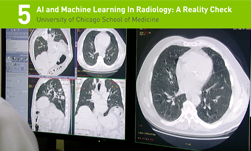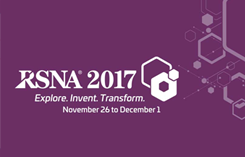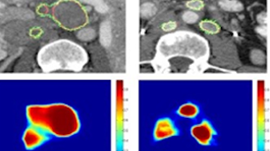Ronald Summers, Senior Investigator at the National Institutes of Health (NIH) shares how they are trying to improve patient care by increasing the accuracy of radiologic diagnosis with advanced computer techniques.
His group is using deep learning and NVIDIA GPUs to assist physicians make a more accurate diagnosis by developing software that improves diagnosis, reduce the chance of errors, and help underserved patients that have limited access to advanced radiology services.
“With deep learning and GPU acceleration we’ve had a substantial improvement in the performance of all these computer programs to the point where the programs are getting pretty close to performing as well as the average physician,” says Summers.
Share your GPU-accelerated science with us at http://nvda.ws/2cpa2d4 and with the world on #ShareYourScience.
Watch more scientists and researchers share how accelerated computing is benefiting their work at http://nvda.ws/2dbscA7
Share Your Science: The Impact of Deep Learning on Radiology
Dec 13, 2016
0
Discuss (0)

Related resources
- DLI course: Medical Image Classification Using the MedNIST Data Set
- DLI course: Data Augmentation and Segmentation with Generative Networks for Medical Imaging
- GTC session: Revolutionizing Healthcare through AI-Empowered Solutions and Medical Devices
- GTC session: Optimizing Your AI Strategy to Develop and Deploy Novel Deep Learning Models in the Cloud for Medical Image Analysis
- GTC session: Rethinking Generalization: Problem-Aware Medical AI With Metrics Reloaded and nnU-Net
- SDK: MONAI Cloud API
0











